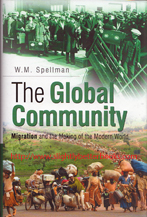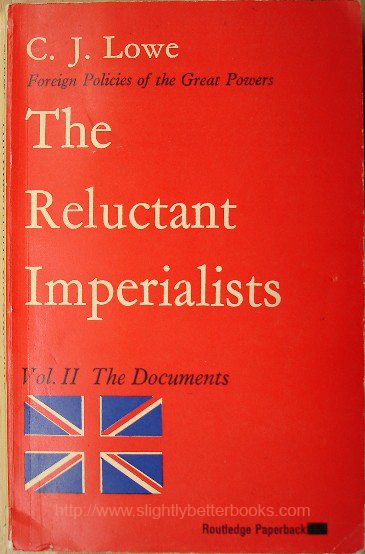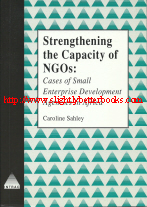

Slightly Better Books
Category Focus:
International Relations
 |
Home | Contact | About Us |  |
|||||||||||||||||||||||||||||
|
|||||||||||||||||||||||||||||||||
| |
|||||||||||||||||||||||||||||||||
| International Relations - foreign policy, embassies, diplomatic | ||
| In Pictures: | ****Hyperlinked titles will take you to our copy on sale or prebuilt searches of copies on sale****
Useful Links: Titles to Look Out For: |
On Amazon: |
 1993, Black Swan Press, pbk In stock, click image above to buy for £20.00, not including post and packing Alternative online retailers to try: Click here to access our prebuilt search for this title on Alibris Click here to access our prebuilt search for this title on Biblio
|
About this book: The conference 'Outside Images of Australia: How Others See Us' was held in the Hyatt Regency Hotel, Perth, between 6-10 July, 1992. More than three years in the planning, the conference attracted prominent speakers from many professions and disciplines and from most parts of the world. Attendances were high, both for the full conference and for individual sessions, and resulted in major coverage in the local and national media and in South East Asia. As Dennis Blight says in his Introduction, the conference established a new pattern for future investigations. Significant contributions were also made in redefining aspects of Australia's relations with some other countries, not only in the Asia-Pacific region, which has been for some time the central focus of much of Australia's attention. This volume broadly follows the organisation plan decided for the conference, that is, to link themes where possible, but within the framework of regional geography. Most sections commence with the papers delivered by the lead speaker or speakers. Following these, papers are arranged where possible in clusters which share overlapping themes pertinent to the particular regions. Not all the papers presented at the conference have been reproduced in this volume. Some were not provided for the editors or were placed elsewhere. Some, good in themselves, did not link closely enough with the conference theme. All the papers have been edited in some way, sometimes by the authors and sometimes by the editors. Ngara, noting a bias towards Asia, suggested that Africa's time may come and Australians have neither the ideological orientation, nor the money to think of themselves as having global interests. Secondly, Donald Horne provided three themes that were reflected in subsequent papers. He spoke of the importance of image issues in terms of: Contents: Australia and New Zealand Australia and Europe Australia and North America Australia and the Indian Ocean Rim Australia and the Broad Asian Region Australia and South-East Asia Australia and Japan Australia and Indonesia Notes on Contributors |
|
 2000, Sutton Publishing, pbk In stock, brand new, click to buy for £5.20, not including post and packing, which is Amazon's standard charge (currently £2.80 for UK buyers, more for overseas customers) Alternative online retailers to try: Or click here to access our prebuilt search for this title on Alibris Or click here to access our prebuilt search for this title on Ebay
|
About this book/synopsis: In 1791, in reaction to the exertion by William Pitt the Younger's government of diplomatic pressure and the threat of naval force to determine the outcome of the struggle between Russia and Turkey in the Balkans, the playwright and opposition MP, Sheridan attacked what he called 'the system of ambition, of vain glory' in British foreign policy. Foreign policy was of central concern in Britain between 1660 and 1793. It affected and interested no only politicians but also all those involved in matters of economics and religion - with taxation, religion and the succession being intimately bound up with Britain's alignment in Europe. It was a time of state-making and of colonial expansion and empire building. A time of expansion, consolidation, and the protection of interests. Jeremy Black's respected history of British foreign policy in this crucial and fascinating era deals with all the major conflicts, including the Anglo-Dutch Wars; the wars of the Spanish and Austrian Successions, the Seven Years War and the American and French revolutions. It includes the role of parliament; the influence of the crown; the diplomatic system; the impact of military considerations; the importance of trade and the growing effect of public opinion and the press. It is a fascinating record of Britain's rise to spectacular greatness on the world stage and will be invaluable for any sutden of 18th Century British and European history. About the author: Jeremy Black is (accurate as of October 3, 2015), Professor of History at the University of Exeter and has published many books including Pitt the Elder: The Great Commoner; Why Wars Happen, Culloden and the '45; and A New History of England; and Historical Atlas of Great Britain: Middle Ages to the Georgian Era v. 2 (National Trust) Acknowledgements; List of Abbreviations; Preface; Introduction PART ONE: Diplomacy and Domestic Pressures: 1. Introduction; and the Sources 2. The Crown - Charles II: a diplomacy for English absolutism? -James II: a protégé of Louis XIV? - William and Anne: rivals to and peacemakers with Louis - The Hanoverian connection 1714-60 -George III 1760 -93: a heart truly British or a Hanoverian - Secret Du Roi? 3. Parliament and Foreign Policy 4. Diplomats, Secretaries of State and Other Ministers -British Diplomats -Secretaries of State and other ministers 5. Strategic and Military Considerations -Military Power -The Navy -Blue water versus continental strategies 6. Trade and Colonies 7. Public Opinion and the Press 8. The Debate over Policy PART TWO: The Course of Policy 9. British Foreign Policy 1660 - 1714 -Introduction -The Restoration -Second Anglo - Dutch War 1665 - 1667 -From Peace to War 1667 - 1672 -Third Anglo - Dutch War 1672 - 1674 -Peace and French Pensions 1674 - 1685 -James II 1685 - 1688 -Dutch William and War 1688 - 1697 -The War of the Spanish Succession 1702 - 1713 10. British Foreign Policy 1714 - 63 -Introduction -George I, the Anglo - French alliance and continental interventionalism 1714 - 1727 -From the accession of George II to the fall of Walpole 1727 - 1742 -The Cartert Years 1742 - 1744 -The last years of the War of the Austrian Succession 1744 - 1748 -Newcastle and the attempt to consolidate the 'Old System' 1748 - 1755 -Britain, France and the outbreak of the Seven Years' War, 1754 - 1756 -The Severn Years' War 1756 - 1763 11. British Foreign Policy 1763 - 1783 -Introduction --Anglo - Bourbon tension 1763 - 1771 -Britain, the First Partition of Poland and Anglo - French relations 1772 - 1774 The American War 1775 - 1783 12. British Foreign Policy 1783 - 1793 -In the shadow of France 1783 - 1787 --Anglo - French relations 1787 - 1793 -- The rise and fall of the Anglo - Prussian alliance, 1787 - 1792 Conclusion; Selective Bibliography; Index |
British Foreign Policy |
 1989, Praeger, hbk Sorry, sold out, but click image above to access a prebuilt search for this title on Amazon UK Alternative online retailers to try: Or click here to access our prebuilt search for this title on Alibris Or click here to access our prebuilt search for this title on Ebay
|
About this book: After World War 2, as long as Berlin remained a source of tension and confrontation between East and West, stabilization of the broader East-West relationship in Europe was compromised. The negotiations of the Four Powers that culminated in the Quadripartite Agreement of September 3, 1971, we an effort to eliminate Berlin as a continuing burden on the relationship between Moscow and the Western Powers, especially the United States and the Federal Republic of Germany. To a remarkable extent, the effort succeeded. Stabilization of relations in Berlin was achieved not by defining a new status for the city or by altering the legal position of either side. On the contrary, a basic principle of the Quadripartite Agreement as drafted is that previous agreements and decisions of the Four Powers are not affected. Their rights and responsibilities - as interpreted by each side - remain unchanged. Thus, the modus vivendi that has been achieved in Berlin rests on the whole history of the relationship between the Americans and the British, and later the French, on the one side, and the Russians, on the other, with regard to the city. The purpose of this book is to trace that history and to examine in some detail how the Quadripartite Agreement was formulated and negotiated in order to bring about a notably improved situation without changing the longstanding positions of principle on either side. The unmodified word "Berlin" itself is never used, since to have acknowledged in the text that the agrement was about all of Berlin, rather than only the Western sectors, would have contradicted the firmly held position of the Soviet Union on the status of the city. The Quadripartite Agreement, may, indeed, be the only important international instrument in which the subject is never defined. The intrepretation and implementation of the Quadripartite Agreement by the powers directly concerned, including most particularly the West and East German powers directly concerned, including most particularly the West and East Germans, is a continuing process that is bound both to influence and reflect that state of the broader East-West relationship in Europe. The Quadripartite Agreement will need to be understood in the context of the earlier wartime and postwar agreements that it incorporates as well as the negotiating process through which it was achieved. This book is intended to help meet this need. Where it is not otherwise indicated, information regarding the Four Power negotiations derives from the recollections and personal notes and correspondence of the authors, both of whom were directly involved, one in Washington and one in Berlin Contents: |
Cold War Berlin |
 1995, Dartmouth Publishing Co., hbk Alternative online retailers to try: Or click here to access our prebuilt search for this title on Alibris Or click here to access our prebuilt search for this title on Ebay
|
About this book: With the end of the Cold War and the 1991 Gulf War, much international attention has focused upon the transfer of weapons and related technology from North to South. The issue of control is complex, involving weapons parts and items that can be used both for military and civilian applications, as well as completed weapon systems. There is a robust proliferation of sophisticated civilian technology that can be used effectively in weapons systems. This volume addresses such issues as: when a transfer is militarily significant; the importance of the integration of appropriate technology into command and control structures; appropriate general strategies for control; the problems of reaching international agreement over transparency of transfers and possible controls; the experience of enforced disarmament by the international community in Iraq; and the special requirements of nuclear weapons control. Nuclear-weapon proliferation has always been a concern since 1945, but now involves the break-up of a major nuclear superpower and increasing difficulties in controlling the global wash of nuclear material. Germany's response in cleaning up its own house, in strengthening national controls, and engaging constructively in international negotiations could perhaps be seen as a model for others. This book is made up of a series of meetings in Italy and Germany held under the auspices of the International School on Disarmament and Research on Conflicts (ISODARCO) Contents: |
International Weapons Control |
 2002, Sutton Publishing, hbk Alternative online retailers to try: Or click here to access our prebuilt search for this title on Alibris Or click here to access our prebuilt search for this title on Ebay
|
About this book: This book is a study of the lot of the migrant - very relevant considering recent headlines and mainstream media discussions: About this book: With the rapid increase of migration across the globe over the past 20 years, the number of countries affected by the results of immigration and emigration has risen substantially. Exploring the development of the global community over the past 500 years, and focusing on the relocation of large groups of people, this book engages in an ongoing debate over the comparative merits of differing cultural, political and intellectual traditions. There are over 100 million immigrants in the world today (2002), 19 million of whom are refugees, so the importance of historical understanding in this area cannot be overestimated. Tracing the broad sweep of voluntary and involuntary global migration since 1500, and surveying moments or periods of key activity in the relocation of peoples, W. M. Spellman addresses both continental and transcontinental migration. Particular focus is placed on the varied causes of migration; and the historical impact of relocated people on their new homelands, including their skills, ideas and experiences, is evaluated. Thus the book looks not only at the fate of migrants but the reasons for their relocation and their positive contributions to new and different environmental and cultural settings. Addressing the main historical mechanisms that underlie the process of migration in the modern world, this book provides a thoughtful and historical context for anyone interested in the problem- and the challenge - of global migration at the start of the 21st Century. Thought-provoking and informative for the general reader, The Global Community will appeal to those with first-hand experience of migration, or anyone with an interest in historical global problems Contents: PART TWO: THE INDUSTRIAL ERA, 1800 - 1945 PART THREE: THE ERA OF GLOBAL MIGRATION: 1945-2000 Conclusion: Emerging Patterns in a New Century |
Other Books on Migration: |
 1967, Routledge, pbk Sorry, sold out, but click image above to access a prebuilt search for this title on Amazon UK Or click here to access our prebuilt search for this title on Alibris Or click here to access our prebuilt search for this title on Ebay
|
About the Book: This collection of documents illustrates the policy described in the first volume of Dr. Lowe's study. Its purpose is less to define what policy was than to give students some idea of the dialogue that lay behind it. To get at the reasons behind policy, most official despatches are inadequate, and it is necessary to read the private correspondence and, where possible, the memoranda prepared for the cabinet. Memoranda to the cabinet are particularly insightful because they explain not only the alternative courses of action to the one eventually chosen, but also the strategy at play influencing the outcome. Particularly revealing are the letters of the Prime Minister to the Sovereign. In the case of Disraeli and Rosebery, the memoranda clearly reveal the differences within the cabinet or the real reason behind the policy of the time. In Queen Victoria's time, the memoranda were as much about convincing her as at explaining decisions made by the Cabinet. The majority of these documents are published here for the first time, but a large number are selected from published papers often widely scattered and difficult to obtain and this is because the author has selected on significance rather than on novelty. Chapters/Contents: Chapter 1. The Eastern Question, 1878-1882 [top of listing] The Object of the Cyprus Convention Salisbury admits reform in Turkey is a hopeless prospect Goschen emphasizes the Liberal Government's interest in reform in Turkey Gladstone seeks to maintain continuity in foreign policy, whilst changing the emphasis to the Concert Bismarck offers advice on the Eastern Question Conservative Policy in Tunis and Egypt Granville and Gladstone accept Salisbury's commitments on Tunis The Liberals and the Occupation of Egypt Chapter 2. The Evacuation of Egypt [top of listing] The Liberal Government announces its intention to withdraw from Egypt The Problem of the Suez Canal Granville Tries to Solve the Financial Problem by a European Conference The Difficulties of Administering Egypt The Problems of Evacuation Divide the Cabinet Gladstone Seeks A Settlement with Bismarck Bismarck Explains His Colonial Policy The Soudan Problem Chapter 3. The Defence of India [top of listing] Agreement to Defend Afghanistan Big Versus Little Endians Candahar to be Abandoned Ripon Advocates an Agreement with Russia Persian Boundary Agreement Discounted by Hartington Afghan Boundaries Herat Means War Granville Stands on Zulficar, having abandoned Pendjeh Salisbury maintains Granville's policy on Zulficar Dufferin explains the difficulties of maintaining Afghanistan as a buffer state Salisbury Seeks German Arbitration The problem of defending India Chapter 4. The Mediterranean Alliance [top of listing] Salisbury seeks an Anglo-Turkish solution to the Egyptian Problem Britain gives diplomatic support to the Unification of Bulgaria Salisbury's anxiety to preserve peace The negotiation of the First Mediterranean Agreement The negotiations for an Egyptian Convention in 1887 Salisbury rejects Russian overtures and reluctantly extends the Mediterranean agreements Chapter 5. Partition of East Africa, 1885-1891[top of listing] Bismarck applies the Egyptian Lever in Zanzibar British interests class with those of Germany and Italy in Zanzibar Salisbury rejects a German alliance Negotiations for an African Settlement with Germany in 1890 The protection of the Nile Chapter 6. Britain and the Franco Russian Alliance 1888-1892 [top of listing] The invasion scare of 1888 and the origin of the Naval Defence Act The Development of the Policy of Limited Support for Italy in the Mediterranean The Defence of Constantinople Chapter 7. Liberal Foreign Policy [top of listing] Naval Expansion and Foreign Policy in 1893 The deterioration of relations with the Triple Alliance Rosebery urges the retention of Uganda Kimberley suggests concessions in West Africa in return for an agreement on the Nile Kimberley supports the Grey Declaration Dufferin congratulates Rosebery on the Siam settlement The Problem in the Pamirs, 1892-1893 Britain Adopts a Negative Policy in the Far East Chapter 8. The Near East and Africa [top of listing] Relations with the Triple Alliance The Reconquest of the Sudan The Portuguese Colonies Chapter 9. The Far East [top of listing] The Cabinet Decides Against War over Port Arthur Balfour opposes a forceful policy over Manchurian railway concessions Chamberlain advocates an agreement with Germany on the Open Door Negotiations with Germany on the Far East in 1901 Negotiations with Japan |
|
 1995, INTRAC, pbk In stock, click to buy for £10.99, not including post and packing, which is £2.80 (Amazon UK's standard charge) Alternative online retailers to try: Or click here to access our prebuilt search for this title on Alibris Or click here to access our prebuilt search for this title on Ebay
|
About this book: This book makes a practical and timely contribution to the current debate on capacity building and organisational development for NGOs. Although the case material is taken from Africa, the principles evolved in these pages are of more universal interest and significance to all development practitioners. The book builds on the foundations laid in INTRAC's earlier study of institutional development in Africa (Fowler et al, 1992) Four workshops took place in 1994 and looked at different aspects of enterprise development, including credit, marketing and training, gender and capacity building. These workshops benefitted from the contributions from UK NGOs such as Care, Traidcraft Exchange, Intermediate Technology Development Group, Womankind Worldwide, Durham University Business School and experienced enterprise development practitioners from Kenya, Zimbabwe, South Africa, Kenya, Egypt, Ghana and Niger. A growing proportion of overseas aid resources is flowing through indigenous NGOs in Africa, Asia and Latin America. Concerns about the capacity and performance of many Southern NGOs are leading Northern NGOs and official donors to seek ways of strengthening their partners that extend beyond technical and financial support. Capacity building models that strengthen and empower local NGOs by improving their management ability and organisational capacities are now an essential component of overseas development strategies. The small enterprise development sector has been the focus of many capacity building efforts. The need for financial and organisational expertise in this sector highlights the importance of developing sound and effective approaches to capacity building. This book examines the theory and practice of capacity building. It discusses common organisational challenges facing NGOs and presents in-depth practical case studies. These cases illustrate a range of assistance models designed to increase the organisational capacity of small enterprise development agencies in Africa Contents: 3. Small Enterprise Development Agencies: Roles, Functions, and Characteristics PART THREE: APPROACHES TO ASSESSING AND STRENGTHENING THE ORGANISATIONAL CAPACITY OF NGOS 5. Organisational Assessment of NGOs 6. Capacity Building Models and Approaches PART FOUR: CAPACITY BUILDING CASE STUDIES 9. Creating Local Credit Agencies
|
|
 1995, The Eothen Press, pbk Sorry, sold out, but click the above image to access a prebuilt search for this title on Amazon UK Alternative online retailers to try: Or click here to access our prebuilt search for this title on Alibris Or click here to access our prebuilt search for this title on Ebay
|
About this book/synopsis: Turkish-Greek relations are at best strained, and from time to time, the two nations stand on the brink of conflict. Their problems fall into the category of regional conflicts. There are important practical issues at stake - chiefly, sovereign rights in the Aegean Sea and the future of Cyprus. These difficult issues are made worse by a historical legacy of suspicion and fear, and by a romantic Greek understanding of the past and vision of the future. In this psychopolitical study, the deeply rooted tensions underlying Turkish-Greek relations are examined by two authors experienced in this field of enquiry, as evidenced by their acclaimed insightful study: The Immortal Ataturk: A Psychobiography (1984). The psychological foundations of the Turkish-Greek relations explored by this book may explain irrational attitudes, whilst differentiating fantasy and unconscious phenomena from reality. The Turkish-Greek conflict will offer an example par excellence (the authors state) of inter-ethnic neighbour psychology and show how this psychology may become a pathological, unseen focus dominating political, economic, legal, and military factors. No such analysis is possible without knowing the parties' histories and the unconscious ingredients of their political cultures. The book will first provide a general overview of the psychology of large group neighbours and then discuss the encounters and hostilities, as well as the partnerships, between the Turks and Greeks beginning in 1071 when the Turkish Seljukid leader Sultan Alp Arslan defeated the Byzantine Emperor Romanus Diogenes IV at Manzikert. The flow of history between the two nations will be examined with a psychological lens. The authors believe that a psychological analysis of enemy image structures, once fully understood, could gradually facilitate the development of an attitude more amenable to a peaceful solution to the differences that separate the Turks and the Greeks. The purpose is to help the Turks and the Greeks, as well as any third party involved, to understand the deep and complex psychological needs, motives and anxieties beneath so-called national sovereignty interests, rights and obligations of states, prestige and dignity of nations, tactics-policy-strategy calculations and 'realpolitik', which are usually considered to be determinants of foreign policy and international relations. The authors also state that they hope the book will be an example of how an in-depth pscyho-historical and psycho-political analysis can be carried out. It should be noted when reading this book that it was written in the mid-1990s when the new world order was still forming and the West had just been involved in repelling Iraq's invasion of Kuwait and the ethnic conflicts in Bosnia. Throughout, the Soviet Union was disintegrating into its respective nation states; and the normative aspect of the 'new world order' was still in an elementary stage in terms of underdeveloped international law and institutions. The regional Turkish-Greek conflict in this book is therefore approached with this as the background. Contents: |
Other Books on Greek-Turkish relations Greek-Turkish Conflict Turkey, Greece & Cyprus |
|
[top] | |
| [top] | ||